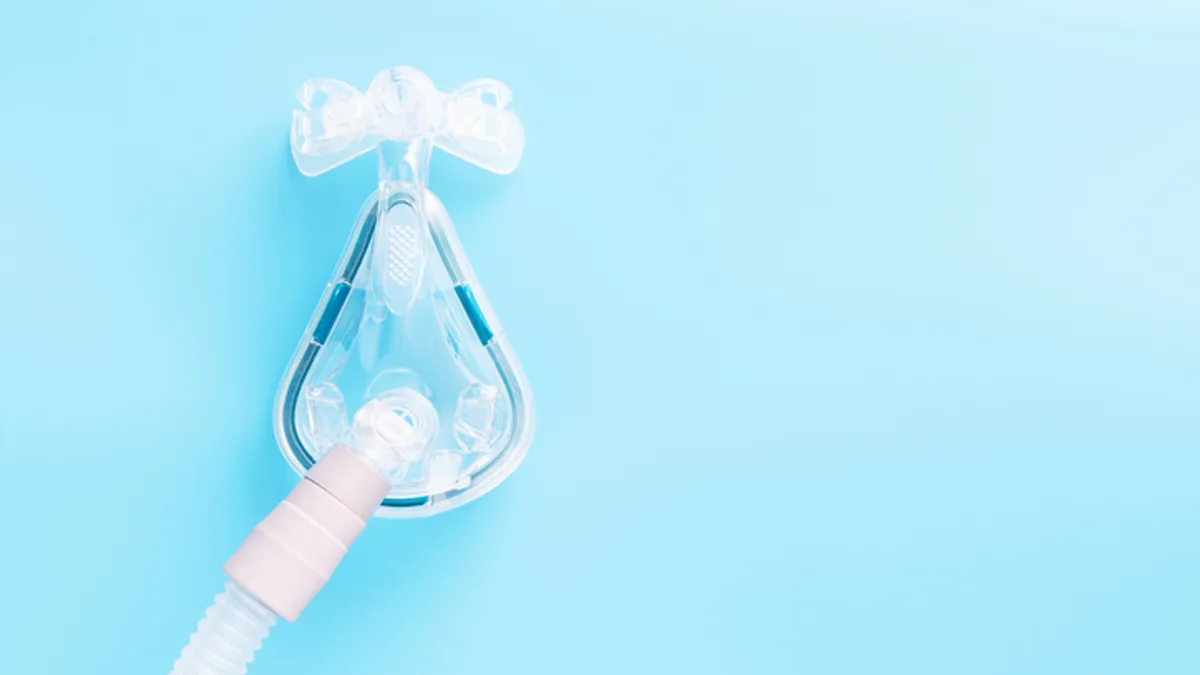ResMed is still maintaining its estimate that it will see between $300 million and $350 million in fiscal 2022 incremental revenue as a result of Philips' ongoing recall. However, CEO Mick Farrell admitted that "it is going to be tougher to hit that estimate than 90 days ago," during a Tuesday fireside chat hosted by KeyBanc Capital Markets.
The company saw roughly $85 million in incremental revenue in its fiscal first quarter, and $45 million in its fiscal second quarter, which ended in December.
Farrell said to expect a tough fiscal third quarter, with results similar to last quarter, and a fourth fiscal quarter that will be "better, but not that much better."
ResMed's stock was down nearly 9% on the news Wednesday. The company's stock was up nearly 3% when the market opened Thursday.
The company is going up against supply chain challenges, coupled with its competitor's sweeping recall. Global shortages of semiconductors in particular have been the biggest factor, a problem that could continue into 2023.
"We're doing everything we can. We see the patients building up in this backlog. It's not good for patients," Farrell said. "We are not limited on manufacturing capacity. And every time we get one more chip, we put it straight into the device."
To address these challenges, ResMed has been redesigning some of its products and turning to new suppliers.
"We're even looking at the use of non-comms devices where we can take out the 5G chip, but then of course we reached the next bottleneck in the system, which is another microprocessor system," Farrell said. "It's almost two steps forward, two steps back some weeks."
The company is still preparing for a scenario where its competitor, Philips, comes back in December. Earlier this year, Philips had shared guidance that it could come back in the fourth quarter of 2022, but the ongoing recall of its sleep apnea and ventilator devices has since expanded.
"I don't think it's realistic based upon the numbers that are out there," Farrell said, adding that March or June 2023 is more feasible.
Philips' recall began after it found the foam it used to soundproof its devices could break down, possibly entering the air pathway and causing patients to inhale toxic chemicals. It was originally estimated to affect between 3 million and 4 million devices, but was expanded to 5.2 million devices earlier this year.
On top of that, the FDA has ordered Philips to notify patients and suppliers of the recall, after finding that "the company's notification efforts to date have been inadequate."
A separate recall, related to some of Philips' ventilators being assembled using expired adhesive, began in March.














